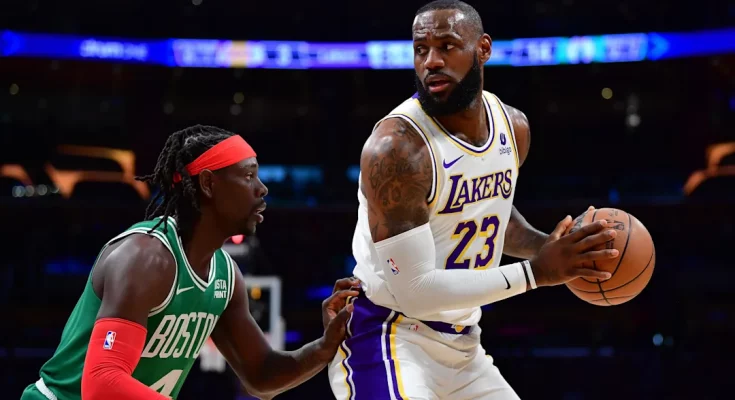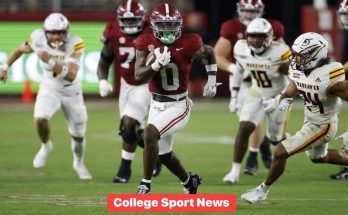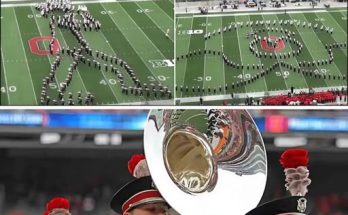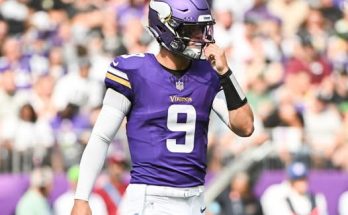In a move that shocked some but made perfect sense to those closely watching the NBA’s financial chessboard, Jrue Holiday, the former UCLA standout and All-Star guard, has been traded from the Boston Celtics to the Portland Trail Blazers. This maneuver by Boston was not born out of dissatisfaction with Holiday’s performance—far from it. Holiday was one of the most reliable and hard-nosed defenders on a team that made a strong push in recent seasons. Instead, this trade was a preemptive cost-cutting strategy aimed at bracing for a potential season without their superstar, Jayson Tatum. For many, the move signals the intricate reality of roster construction in the NBA, where financial flexibility can often determine a team’s future as much as on-court chemistry.
Jrue Holiday is not your average NBA player. Known for his gritty defense, unselfish offense, and veteran poise, he has been a key figure on every team he’s played for. Whether it was his early days in Philadelphia, his All-Star emergence in New Orleans, or his title-winning tenure in Milwaukee, Holiday has been a professional in every sense of the word. When Boston acquired him, they knew they were getting a battle-tested guard who could fit seamlessly into a team that prided itself on defense and ball movement. His role on the Celtics was clear: defend the opposing team’s best guard, make smart decisions, and serve as a steady hand in tense playoff moments.
In many respects, Holiday delivered. He anchored the Celtics’ backcourt defense, allowing players like Derrick White and Jaylen Brown to thrive more freely on the offensive end. His low-usage but high-efficiency offensive game meant he didn’t need the ball to make an impact, a perfect complement to the high-usage tandem of Tatum and Brown. However, lurking beneath the surface was a harsh financial reality. The Celtics were one of the NBA’s most expensive teams, and with Jayson Tatum due for a massive contract extension, the front office had to make difficult choices. Trading Holiday became less about talent and more about future planning.
What complicates matters is the uncertain status of Jayson Tatum for the upcoming season. Reports have suggested that Tatum could miss significant time due to a lingering wrist injury that may require surgery. Though the Celtics have not officially confirmed the length of his absence, all signs point to Boston preparing for a season—if not a partial one—without their franchise cornerstone. Tatum is the engine that drives the Celtics, a two-way wing who can score, facilitate, and defend at an elite level. Without him, the team’s ceiling drops considerably, and thus the logic behind shedding salary becomes clearer.
By moving Holiday and his contract, the Celtics free up cap space that allows them to remain nimble. This move also helps them avoid significant tax penalties in the future, especially under the new collective bargaining agreement that penalizes high-spending teams with harsher restrictions. It’s a proactive move, not a reactive one. Rather than waiting to be cornered into making a trade midseason when leverage is low, Boston opted to act now and preserve future flexibility.
For Portland, acquiring Jrue Holiday is a win on multiple fronts. Though the Trail Blazers are not currently considered championship contenders, they are in a phase of strategic retooling. After trading Damian Lillard and pivoting toward a younger core centered around Scoot Henderson, Shaedon Sharpe, and Anfernee Simons, Portland is now looking to blend youth with experience. Holiday fits the bill perfectly. Not only can he serve as a mentor to the younger guards, but his presence stabilizes the locker room and sets a standard for professionalism and defensive intensity.
In practical terms, Holiday’s arrival in Portland gives the team more optionality. They can choose to keep him and integrate his veteran leadership into the rotation, or they can explore flipping him again at the trade deadline for more assets. Either way, the acquisition bolsters their roster in the short term while preserving long-term goals. Unlike many rebuilding teams that lean entirely on youth, Portland understands the value of surrounding young talent with seasoned veterans who can teach them how to win, prepare, and handle adversity.
One cannot ignore the emotional layer of this transaction. For Jrue Holiday, the trade comes after publicly expressing a desire to stay in Boston long-term. The city embraced him, and he quickly became a fan favorite due to his tough-nosed play and quiet leadership. Unfortunately, in the NBA, loyalty often takes a back seat to business considerations. The Celtics, for all their storied history and emphasis on culture, had to prioritize their future and Tatum’s impending supermax deal. This wasn’t personal—it was purely business.
To understand the full picture, we must delve into the NBA’s current economic environment. With the league’s new collective bargaining agreement introducing harsher penalties for teams that exceed the luxury tax, front offices are increasingly under pressure to operate with long-term financial prudence. The “second apron” threshold, in particular, acts as a punitive measure for high-spending teams, limiting their ability to sign free agents, execute trades, or even make use of certain exceptions. For a team like Boston, which has multiple players on hefty contracts—including Jaylen Brown’s historic extension—every dollar matters.
The Holiday trade should be viewed in this context. Rather than trying to juggle multiple expensive contracts while hoping for a title window to remain open, Boston is hedging its bets. If Tatum misses extended time, the Celtics could pivot into a development year, focusing on giving more responsibility to younger players like Payton Pritchard and Sam Hauser, while remaining competitive but not financially overcommitted. It’s a smart if emotionally difficult path.
Another aspect worth considering is what this means for Boston’s identity. The Celtics have long been defined by their defensive tenacity and team-first approach. Holiday embodied both traits, so losing him creates a void—not just on the court, but in the locker room as well. While Derrick White remains an elite perimeter defender, the loss of Holiday means more responsibility shifts onto others. Boston will need a collective effort to replicate the defensive prowess that Holiday brought every night.
Offensively, the Celtics may also have to reconsider their schemes. With Tatum potentially out and Holiday gone, more playmaking responsibilities will fall on Jaylen Brown and White. Both are capable, but neither is a true floor general. The Celtics may experiment with dual-guard lineups or rely more heavily on Kristaps Porziņģis as a playmaking big. The goal will be to maintain spacing and tempo while not overburdening any one player.
From an educational standpoint, this trade is a masterclass in asset management and strategic foresight. It illustrates how NBA front offices must balance present competitiveness with future flexibility. It also underscores the emotional toll of professional sports, where fan favorites can be moved not due to performance but due to financial imperatives. The Holiday trade is not an indictment of his game, but a signal of Boston’s evolving priorities.
For fans, the lesson is clear: success in the NBA isn’t just about having stars—it’s about managing timing, contracts, health, and culture. The Celtics, by moving Holiday, have chosen to prioritize the long-term health of their franchise. They are making a bet that Tatum’s return, paired with a leaner cap sheet and more flexibility, will position them better for future runs. It’s a gamble, but one that makes sense when you examine all the moving pieces.
As for Holiday, his journey continues. In Portland, he’ll have the opportunity to impact a new generation of players, bringing with him the experience of a champion and the mindset of a pro. Whether he stays in Portland long-term or becomes a trade deadline target for contenders, one thing is certain—wherever Jrue Holiday plays, he’ll elevate the people around him. His value extends beyond stats, reaching into culture, professionalism, and identity.
In the ever-evolving landscape of the NBA, moves like this are becoming increasingly common. Stars are traded not because they underperform but because their contracts no longer align with a team’s financial timeline. Teams must plan years in advance, considering everything from tax penalties to injury risk to market dynamics. Boston’s decision to trade Holiday is a reflection of this broader reality, a necessary step in a league where the salary cap is not just a guideline—it’s a defining force.
The ripple effects of this move will be felt across the league. Contenders looking for a playoff-ready guard may now circle Portland’s roster, eyeing Holiday as a midseason acquisition. Teams on the cusp of contention know that someone like Holiday can swing a playoff series. Meanwhile, Boston will look inward, testing the depth of its roster and the resilience of its system in the absence of both Tatum and Holiday.
Ultimately, the Holiday trade is a reminder of the delicate balancing act required to build and sustain success in the modern NBA. It requires vision, discipline, and a willingness to make unpopular but necessary decisions. Boston has made its move. Now it’s time to see whether the bet pays off—or whether the void left by Jrue Holiday proves too great to fill.



